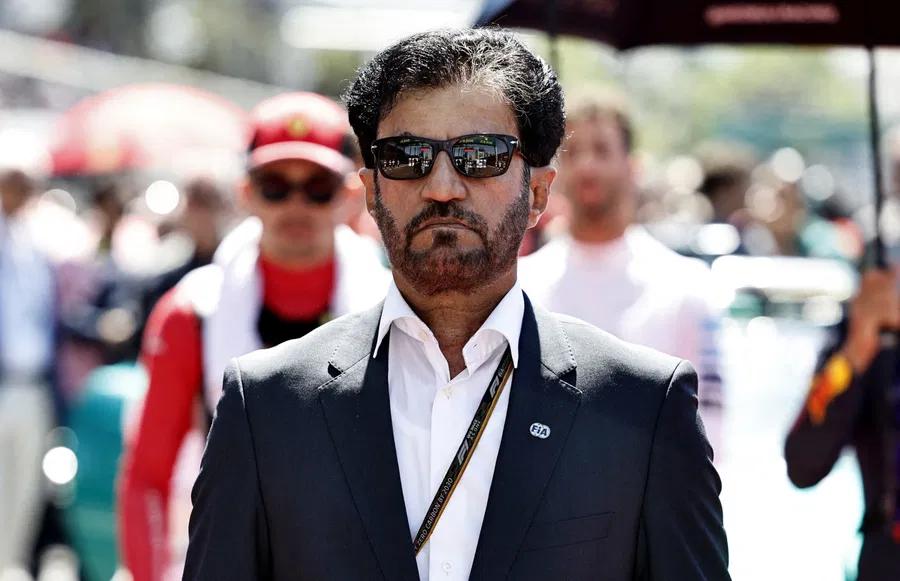The ongoing controversies surrounding FIA President Mohammed Ben Sulayem’s management style have brought turbulence to Formula 1’s governance. A series of high-profile dismissals, disputes over race-day decisions, and alleged power consolidation have raised concerns about the sport’s leadership direction.

The Tim Mayer Incident and Its Implications
Tim Mayer, a long-standing figure in Formula 1 with 15 years of service, recently found himself ousted from his stewarding role via text message—a decision he claims stems from his involvement in handling the right of review during the 2023 U.S. Grand Prix at COTA. Mayer alleges that Ben Sulayem harbored resentment over the €500,000 fine imposed after safety breaches at the race and targeted him as a result.
The decision to fire Mayer has sparked backlash, with critics labeling the move unprofessional, particularly given his volunteer contributions and seniority. Mayer expressed disappointment in the handling of his dismissal, stating it reflected poorly on the FIA’s leadership.

Other Dismissals Under Sulayem
Mayer’s departure follows other notable exits:
- Niels Wittich, former F1 race director.
- Janett Tan, Deputy F2 race director.
- Paolo Basarri, FIA compliance officer.
These dismissals suggest a pattern of upheaval under Sulayem’s tenure, further fueling concerns that his leadership style may be overly authoritarian. Critics argue that such moves disrupt the independence of the stewards and undermine the sport’s integrity.
Interference with Steward Decisions
Sulayem has reportedly taken a more hands-on approach to stewarding, encroaching on their autonomy. Notably:
- Max Verstappen received a community service penalty for swearing during the Singapore Grand Prix.
- Charles Leclerc faced a €10,000 fine for similar behavior during the Mexican Grand Prix.
These incidents highlight Sulayem’s efforts to enforce stricter behavioral standards. However, Mayer and others argue that penalizing drivers for minor infractions like swearing is unnecessary and detracts from the sport’s focus.
Driver Reactions
Max Verstappen, the 2024 F1 World Champion, expressed frustration with these penalties, calling them “ridiculous” and suggesting he may curtail media interactions to avoid further fines. His response reflects growing dissatisfaction among drivers, many of whom feel that Sulayem’s actions are out of touch with the realities of high-pressure racing.
The Bigger Picture
Sulayem’s approach has drawn mixed reactions:
- Supporters argue that his reforms aim to modernize and standardize F1 governance.
- Critics contend that his leadership undermines the collaborative spirit required for the sport to thrive.
As Formula 1 continues to grow in global popularity, the stability and fairness of its governance are paramount. If Sulayem’s actions alienate key personnel and stakeholders, the sport risks reputational damage and operational challenges.
What’s Next for Formula 1?
The current climate suggests that further changes within the FIA management structure may occur. Whether Sulayem can address the criticism and restore trust among teams, drivers, and fans will be critical in determining the sport’s trajectory under his presidency.